Pompey, passion and Fratton Park '“Â an outsider's view by Simon Carter
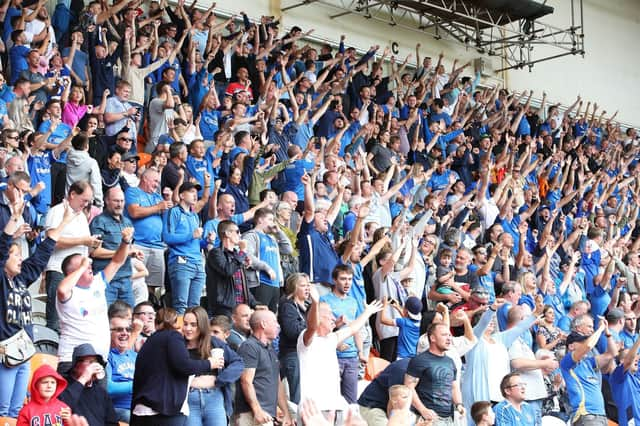

Football matches is the obvious one, money is another. Those of you who hold Portsmouth FC dear to your heart know the inevitable end results when those events occur too frequently and in large amounts.
Beyond the obvious, though, lies a bigger picture. Dig a little deeper than 90 minutes on a Saturday afternoon or a cursory glance at a bank statement '“ though of course they both matter '“ and you discover the glue that must hold everything tight, the adhesive that binds what should always be the throbbing heartbeat of a local community.
Advertisement
Hide AdAdvertisement
Hide AdTalking last week about Pompey's options regarding staying or leaving Fratton Park, chief executive Mark Catlin identified the glue I am talking about when discussing the possibilities available with owner Michael Eisner.
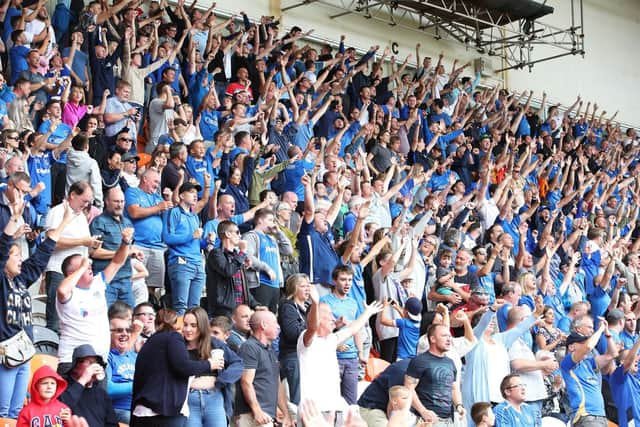

Knowing full well there are hardly any viable sites for a new stadium in the city, he told The News: '˜If you go off the island there are more options, but then you start to lose the heart and soul of the club, which isn't something Michael and the directors want.'
Just three words should stand out from Catlin's comments. Not very big words at that. But they are the aforementioned glue.
Heart and soul.Â
They are the words that describe a football club distilled down to its essence of being. Without either, what remains is spiritually weaker.
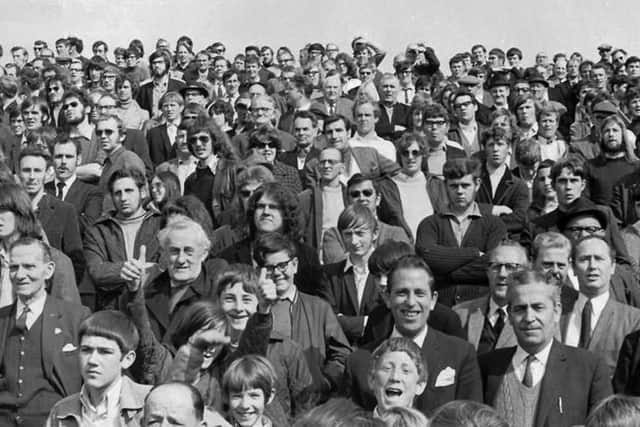

Advertisement
Hide AdAdvertisement
Hide AdAs per usual, thousands of Pompey supporters packed Fratton Park at the weekend to witness a 3-0 victory over Plymouth. Most of them '“ most of you, as I'm writing this on a Portsmouth newspaper website for Portsmouth people '“ will have walked through the same turnstiles hundreds of times, if not thousands. Not me, though, I was making only my fourth visit to the ground, and the first where I wanted a home victory.
Though religious zealots might accuse me of heresy, I do not consider it hyperbole to describe Fratton Park as a sporting cathedral.
Pompey are one of 92 clubs in the top four tiers of English football, and only six '“ Preston, Burnley, Wolves, Blackburn, Aston Villa and Sheffield Wednesday '“ have been at their present ground longer than Portsmouth have called Fratton Park home. Geographically, that leaves Pompey out on a southern limb. The fans might like it that way. Since it was built in 1899 the stadium has always been home. Perhaps it always will.
For what it's worth, this is my outsider's view. I've heard and read that Portsmouth is an insular city, but sometimes an outsider's voice can be worth listening to...
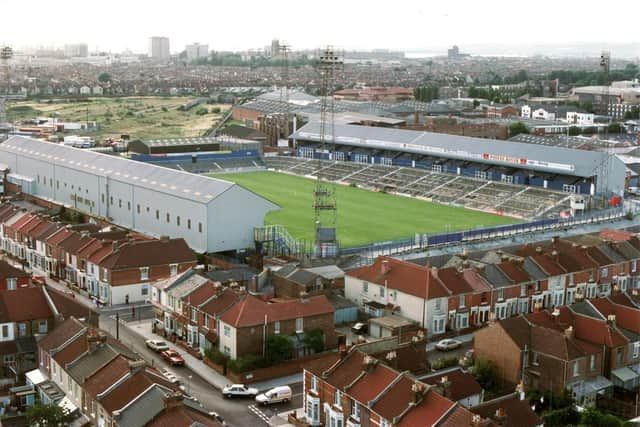

Advertisement
Hide AdAdvertisement
Hide AdIn travels up and down the country watching my own club, Exeter City, two grounds stand out in recent years as providing the tribalism that should be inherent at all professional football matches. And no, I don't mean tribalism as in hooliganism, I mean tribalism as in supporters passionate enough about their club to create an impressive atmosphere.
One is Kenilworth Road, Luton (though it helped that Luton were top of the table when I went there). And the other is Fratton Park.
Since 1988, 33 clubs out of the previously mentioned 92 have moved to new stadiums. Luton and Portsmouth are not among them.
Anyone familiar with football stadiums will know both are old grounds in densely-populated areas surrounded by terraced houses. A modern-day reminder of Pathé newsreels, a time when the motorcar did not rule and the predominantly male crowds all wore hats.
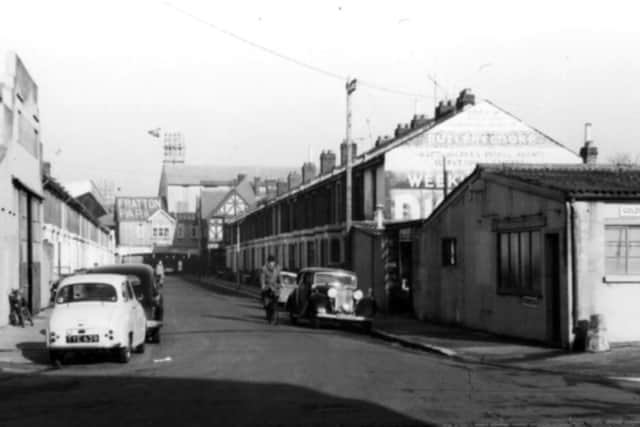

Advertisement
Hide AdAdvertisement
Hide AdDriving both to and from the game on Saturday was the grim, time-consuming experience anybody who knows Fratton Park on a matchday (apart from the EFL Trophy) will be familiar with. But the gold at the rainbow's end was the undisputed fact that you, the Pompey faithful, still have a stadium which provides a cracking atmosphere when you're in good voice.Â
That is the heart and soul I'm talking about.Â
Of course, there might be those who would prefer a 25,000 all-seater stadium with easy vehicular access and good motorway links. But there is evidence to show big, shiny and coated in a corporate veneer is not always the answer. Not everyone would prefer a prawn sandwich to a Mick's burger.
West Ham quit their famously cramped Upton Park ground two years ago for the far bigger surroundings of the London Stadium. Though their attendances have improved as a result, results have generally been poor '“ if the season finished now Pompey would be going there in the Championship next season '“ and more fans have not resulted in better atmospheres. Indeed, the opposite is true.
Ditto Southampton. It's been getting on for 20 years now since the Saints left The Dell for the 32,000 all-seater comforts of St Mary's, but there are still fans who will always prefer the cramped environs of their former stadium. The likes of Upton Park, The Dell and Derby's old Baseball Ground were venues where the home supporters made life uncomfortable for visitors, in terms of proximity to the pitch and vocal backing. In a far bigger, all-seater arena it is not so easy to create that feeling.
Advertisement
Hide AdAdvertisement
Hide AdIt is also not so easy to fill those arenas if you're not successful all the time and, unless you're one of the elite, you won't be. At least Pompey fans consistently pack Fratton Park, even though the club are playing at a lower level than supporters would realistically expect given their club's history. Indeed, Pompey's average crowd last season in League 1 was bigger than it was 30 years earlier, and lest we forget, the club were in the top flight in 1987/88.
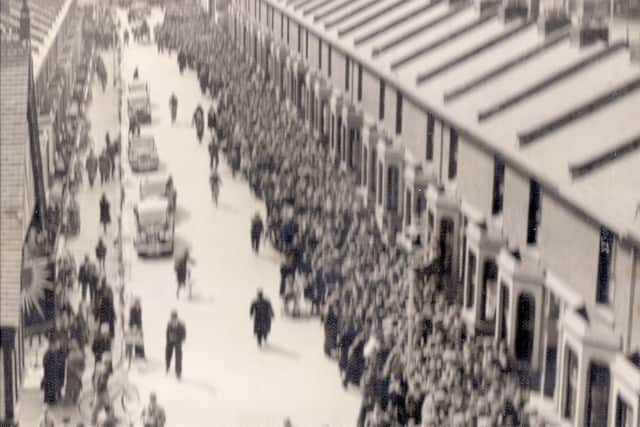

In a nutshell, therefore, it is easy to lose far more than you gain by upping sticks and moving to supposedly greener pastures. Yes, you can attract 'new' fans to start with and, yes, that does mean extra cash. But whatever the financial implications, no club can realistically afford to lose its 'heart' or its 'soul'. As I've said, they matter in football '“ and they matter a lot. It matters a lot more than being able to park your car easily, that's for sure.
Would Pompey lose both if they ever moved from the ground they have called home for 129 years? A hypothetical question, obviously, but one worth asking.
I also cannot answer the question as to whether Portsmouth people are any more insular than anywhere else, I can only speak from experience. And from a footballing one, I hope Fratton Park '“ a glorious throwback in a time of identikit all-seater stadia '“ forever retains its tribalism, its emotion, its passion, and its place as the undoubted heartbeat of the Portsea Island community.Â
For if you ever lose all that, its replacement had better be good .